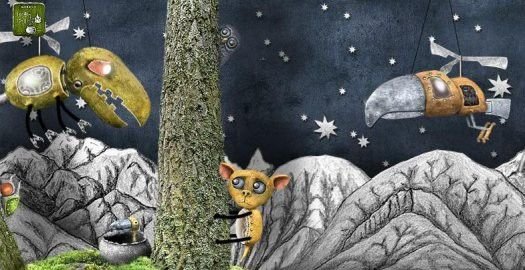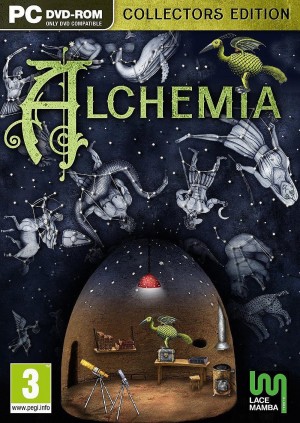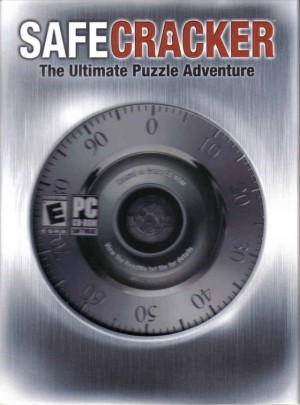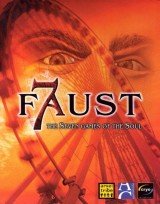Review for Alchemia

Game information
Little indie developer Springtail Studio followed very closely in the footsteps of Samorost in both the look and feel of their browser-based Haluz titles. With Alchemia, they’ve taken the similarities further still, releasing first as a part-free, part-pay adventure. Now the game is finally breaking into uncharted territory as a full retail release, upping the stakes in the process. Unfortunately, this attempt to replicate Amanita’s successful formula produces not the desired golden game, but a creation that stumbles somewhat with feet made of lead.
The hero of Haluz 2, now named Noses, reappears in Alchemia, sitting alone by a campfire when a flock of flying robotic dinosaurs passes by and one pauses to steal his dinner. The small axe Noses hurls to drive it off ends up bringing it down completely, and he is surprised to learn it was inhabited by a dinosaur spirit called Lootpecker. Feeling guilty at having destroyed its old body, our hero agrees to help build it a new one, despite being a large and dangerous-looking creature that describes itself as a hunter. Thankfully, it’s not a Noses-eating dinosaur, as we later learn in a mid-game shift of goals that clearly separates the online freeware and paid portions of the game. The premise of creating a fire-dousing robot from that point on is just as simplistic, and that’s about all there is for story in Alchemia.
While serving as little more than a threadbare backdrop, the narrative is periodically expanded upon through dialogue bubbles, a feature not included in previous Springtail games. This unvoiced text is brief and strictly functional, merely intended to fill in additional plot details easily, though often it does more harm than good, emphasising how unbelievable the whole scenario is. When our protagonist meets a resident who inadvertently blurts out the city’s big alchemical secret, he then swears to Noses that “we won’t let you out!” On hearing this, Noses expresses his dismay, yet calmly strolls past the speaker further into the city anyway, and the issue is never raised again. Perhaps his sense of duty is stronger than his fear, but this exchange highlights how counter-productive the added story elements actually are to the overall experience.
Fortunately, there are no such complaints about the game world itself. Alchemia’s graphics are composites of photographed natural elements like rocky outcrops, cloudy skies, and tree bark with detailed hand-drawn elements. The organic aspects, such as the moss that serves as grass in the opening scene, have more exaggerated colour than they would naturally, which gives the setting a more fantastical, other-wordly feel. These images create a compelling background to Noses’ adventures, and the artistic additions blend in well, with ramshackle buildings resting on vast underground promontories, and a large stone troll sitting in a grassy clearing, wiggling his ears.
The animation effects are equally well done. Noses moves smoothly as he scrambles aboard a tractor or demonstrates his throwing skills. Ambient activity like the mechanical insects flying around the underground city and the vicious guard dog near the entrance serve to bring the environments alive. One especially impressive piece of animation is the spirit of Lootpecker. When still, he is a ghostly white version of his original form with a gentle glow around him. When he moves, he becomes a blurry cloud that rapidly loses all semblance of a coherent shape, coalescing once he is still again. The transition between the two forms is always convincing and reinforces his ethereal nature.
Alchemia's sound effects further enhance the surreal atmosphere, from the chiming of the city’s end-of-shift work bells to the clanking of operating machinery. The background music, appearing in most scenes, I found less inspiring. It largely consists of bland guitar and drum pieces which sound vaguely improvisational and yet still feel repetitive over time. There is no speech or any vocal expression at all from the characters, which is a shame, as it could have helped convey a sense of character that is otherwise lacking.
Exploring this world is handled by simple point-and-click, and as the game was made using Flash, only left-clicking is available. For the most part you will be clicking items close to Noses himself, such as machine controls or valve wheels, though occasionally you’ll click items he can’t reach to trigger a response. Unlike Springtail’s previous games, Alchemia also includes an inventory, with rare objects like bricks stored on the left and information such as recipes stored across the top. Objects can only be dragged about, whereas clicking on information causes its small icon to expand to readable size. The problem with this distinction is that at least one item serves as both object and information, a fact that leads to it behaving differently depending on when it is clicked. Nevertheless, the controls are easy to understand and shouldn’t give anyone any problems. This is good, as the in-game manual prefers to make an overly extended joke about its redundancy, rather than explain either the basics for newbies or the unusual inventory and password system.
Passwords provide a save system alternative, and they appear regularly throughout the game. These fade soon after you enter each new area, and it can be easy to miss one if you take time to admire a new screen rather than noting it down immediately. This automatic fading seems unnecessary, as the passwords are not particularly intrusive and their window comes with a close button in the corner anyway. Once the password is gone, there is no way of retrieving it and no other means of saving until you progress to the next new scene.
With surprisingly few interactive hotspots or natural environmental challenges, Alchemia’s puzzles are limited in variety and rely heavily on operating mechanisms of various sorts: The out-of-reach chain that grants Noses access to the city entrance is attached to a vehicle, and crossing a gap requires the correct alignment of dials to raise a bridge. Even obtaining the code to open a door involves turning some cogs to find the correct combination. Apart from one small detour near the start, Noses’ progress is strictly linear, with correct operation of these machines providing the key to advancement. While more diversity would have been welcome in its own right, another problem I had with these mechanisms is that far too many of them involve repeated button pressing experiments, which stops being fun long before you’ve solved each one.
This isn’t the only problem with the puzzles. In the latter half of the game, you are asked to align constellation pictures with actual star positions. Again this is achieved by rotating two wheels, one with the images and one with the stars. This setup has some problems. Firstly, as is the case with our constellations, the symbolic pictures are not exactly perfect representations of the star layouts themselves. Whilst exact matches would make this puzzle too easy, some actually bear very little resemblance to their supposed counterparts. This could lead to players abandoning a solution that is close to correct, because some of the constellations clearly don’t match. Making matters worse, the puzzle appears to contain a clue which proves to be nothing of the sort. Turning to the walkthrough, always accessible at the bottom of the screen, is likely to lead to cries of frustration, as it only tells you how to reach the solution from the starting position. If you have fiddled around with the puzzle at all, and naturally you will, you’ll have to start the scene from scratch (if you remembered to note the latest password).
A sound puzzle also provoked much frustration for me, and will surely cause even more for anyone with tone difficulties. The 14-note code needed plays moderately quickly, and I had to play it several times before I got the sequence down. This was not helped by the decision to have background music playing at the same time. I tried turning the sound off, but this silenced the background music and note sequence alike. Even after determing the correct notes, you then need to set up a machine to match the complex play sequence, which inevitably requires much trial-and-error. Dragging things out further still, every time you run the machine with a mistake in the setup, you have to listen to the entire sequence again, even if it is immediately obvious it’s wrong.
Fortunately, a few puzzles do stand out as original and entertaining. Setting a clock to a desired time requires finding a way of stopping the little man inside it from holding the hands still. A different early clock-based puzzle incorporates a clever twist which initially resulted in me picking the wrong settings. Spotting that twist and rectifying my error was a truly satisfactory experience. Sadly, these are the exception rather than the norm. The natural environments are disappointingly underused, and little advantage is taken of the inventory, with only three usable objects, none of which travel any distance. The end result is a collection of puzzles that feels too similar, too repetitive, and too “mechanical” in more ways than one.
Having largely enjoyed Springtail’s freeware adventures, I had reasonably high hopes for Alchemia. To a certain extent, these were fulfilled by the first half of the game, as not all of the problems had become glaring by that point. These stages are available free online for those who wish to sample them. Perversely, this means that the paid portion of the game is the less satisfying part. The endless button-pressing I found so annoying predominates in the second half, and the puzzles overall are not as varied or well-implemented as they could have been.
The boxed version will give you the full game on disc, but even combining the free and commercial portions together, the entire experience is very short, likely taking no more than a couple of hours to complete. Samorost fans desperate for a similar-looking game may get some enjoyment from this, but I suspect even they will find Alchemia does not stack up well compared to Amanita’s level of polish. It looks great and certainly has its moments as you explore its charmingly surreal environments, but riding the coat-tails of a popular series will only carry you so far, and Alchemia shows how much more is needed to be successful in your own right.
Our Verdict:
It looks nice on the surface, but this is one alchemical experiment that produces as much of an unsatisfying mess as an enjoyable experience.

















__small.jpg)










